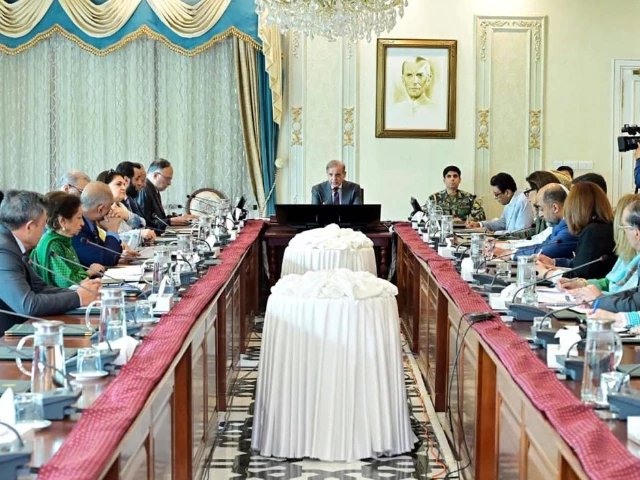Prime Minister Shehbaz Sharif called on Pakistan’s annual population growth rate by 2.55% on Thursday an “alarming trend” and called for urgent and coordinated action to take up the growing challenge, reported Associated Press of Pakistan.
Chairing a high -level meeting at the Prime Minister’s office, the Prime Minister said that increasing figures required a complete national strategy to manage population growth and ensure sustainable development.
“We need global planning to ensure that our growing population, in particular young people, becomes a productive part of the economy,” said the Prime Minister, describing the youth of the country as its greatest asset.
The Pakistani population, which was 31 million at the time of its independence in 1947, reached 241 million according to the 2023 census.
Learn more: NAP operations to continue without interruption: Talal Chaudhry
According to projections of the United Nations World Population World Report 2024, the Pakistani population is expected to peak in 2092 with 404.68 million people. The report also indicates that the population of Pakistan will exceed that of Indonesia in 2048, reaching 331.29 million by then.
Despite a drop in the fertility rate, which went from six living births by woman in 1994 to 3.6, the country should become the third most populous nation in the world by 2050, exceeding the United States, Brazil and Russia.
The Prime Minister noted that the government is actively working to empower young people and integrate them into economic current. “Opportunities are created to allow our young people to play a central role in national development,” he added.
Stressing the need for greater gender inclusion, Prime Minister Shehbaz stressed the importance of women’s participation in the workforce. “Women are an important part of our human capital. We have to ensure greater job opportunities for them, “he said.
Learn more: Pti Slams Punjab’s RS730M BulletProof Vehicle Purchase
To develop an effective national response, the PM has led the formation of a political committee in coordination with provincial governments. “A unified and strategic response is the need for the time,” he said, recommending a federal-provincial framework to respond to the concerns related to the population.
The Prime Minister also called for a national awareness campaign to educate the public on the implications of uncontrolled demographic growth, in particular in terms of economic sustainability.
During the meeting, officials presented various policy proposals, stressing that long -term solutions would require provincial cooperation and popular commitment.
The meeting was followed by the Minister of Planning Ahsan Iqbal, the Minister of Education Khalid Maqbool Siddiqui, the Minister of Information Attaullah Tarar, the Minister of Religious Affairs Sardar Muhammad Yousaf, the Minister of Law Azam Nazeer Tarar and other senior government officials.




